3 local, small business values for nationwide sustainability
October 27, 2011
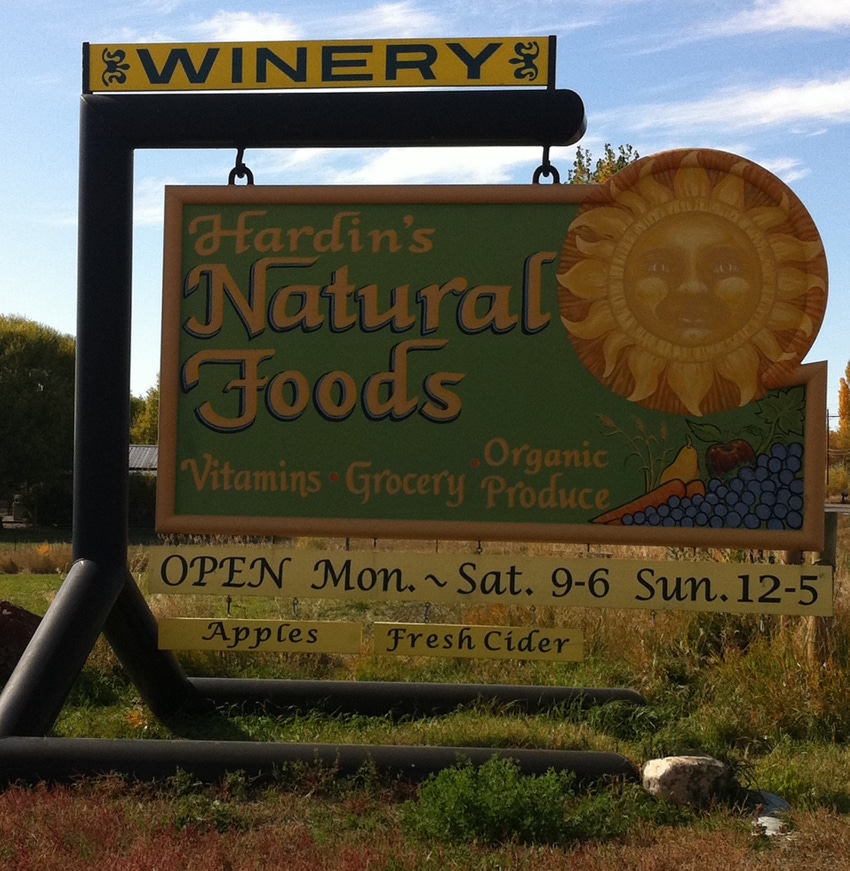
It’s 2 p.m. Typically too early for dessert, or a glass of wine, yet on a beautiful autumn day in Hotchkiss, Colo., I am unapologetically sipping on a hybrid: ginger wine.
Like many business owners in Delta County, Lisa and Scott Fairbank have an 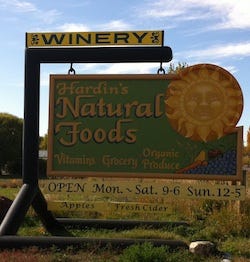 impressive skill set, which yields a variety of local delights that are available at their store, Hardin’s Natural Foods: Wacky Apple, a line of USDA Organic applesauce, fruit tape, and juice; Wholly Whole Grains pancake mixes; and wine, including their latest made from ginger and raisins.
impressive skill set, which yields a variety of local delights that are available at their store, Hardin’s Natural Foods: Wacky Apple, a line of USDA Organic applesauce, fruit tape, and juice; Wholly Whole Grains pancake mixes; and wine, including their latest made from ginger and raisins.
Perfectly paired with sushi rolls was all Lisa needed to say and I had mapped out her distribution to ensure that the product would grow rapidly—and soon reach a sushi restaurant near me. But the ensuing conversation mirrored most others, thoughtful and heartfelt, that I’d have during my time spent in the area.
The local producers, farmers, and winemakers in Delta County want to stay just that way: small and local. On my way back to Boulder, I stopped at Sustainable Settings in Carbondale, where owner Brooke LeVan summed it up with his no-ship ever, ever, EVER policy. “You like our beef? Go find some in your town you like just as much.”
I was disappointed that I wouldn’t always get my on-demand fill of Delta County wine (ginger and otherwise), jam, beef, cider, cheese. But I have a new appreciation of what local means—and of the unique ways in which Delta County’s core values benefit not just their community but the future of sustainability nationwide. Here are three.
1. Educating Generation X
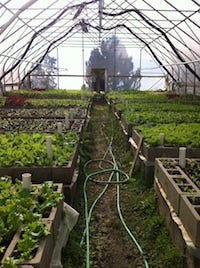 How can organic feed the world? Increasing output isn’t a sustainable solution; rather, spending time increasing education will have large, long-term effects, says Lynn Gillespie, owner of Paonia’s The Living Farm. Gillespie mentors young people through a rigorous internship program (up to three years) and at the farm’s Sustainable Education Center. Students get the plant, animal, and business skills necessary to farm organically and to create sustainable resources they’ll need to start their own farms (her latest project turns recycled paper and boxes from the community into large farm structures). She continues helping students until their own farms are up and running.
How can organic feed the world? Increasing output isn’t a sustainable solution; rather, spending time increasing education will have large, long-term effects, says Lynn Gillespie, owner of Paonia’s The Living Farm. Gillespie mentors young people through a rigorous internship program (up to three years) and at the farm’s Sustainable Education Center. Students get the plant, animal, and business skills necessary to farm organically and to create sustainable resources they’ll need to start their own farms (her latest project turns recycled paper and boxes from the community into large farm structures). She continues helping students until their own farms are up and running.
If every farm offered similar programs, unemployment rates would decrease, as young farmers would make organic the norm, Gillespie said. Sustainable Settings also offers education programs open to the public. Interestingly, both farms resist USDA Organic certification, though their practices far exceed its requirements. When a neighbor can simply walk across the street to pick up some eggs or strawberries, see the slaughtering of a chicken or the digging of potatoes—even take part in it—conversation and education takes the place of certification.
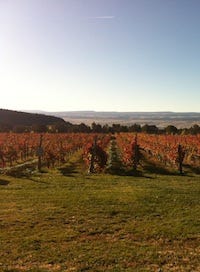 2. Broadening product range
2. Broadening product range

During a local, organic meal at Fresh & Wyld Farmhouse Inn, I sat with a couple that had retired in Paonia. My new friend Judy was a coal miner, turned women’s boutique owner, turned recreational cheese-, wine-, and charcuterie-maker (and pilot). Was it something in the air—or perhaps in the soil?
Though Judy hasn’t transformed these homesteading skills into another business, my trip culminated at Leroux Creek Inn, where owners Yvon Gros and Joanna Reckert have. Gros is a classically trained chef and the lead winemaker, using USDA Organic grapes from the vineyards. Reckert has created a natural grape-based skin care company that also uses the vineyard’s bounty. Together, they run a successful inn located in Hotchkiss where they sell their products and teach homesteading skills.
At The Living farm, Gillespie also sells products like socks and sweaters made from sheep’s wool, and I have a sneaking suspicion that ginger wine isn’t the Fairbank’s last introduction. By expanding types of offerings, rather than producing way more of one product, local producers in the area provide the community with everything it needs—and put all of the area’s resources to good use.
3. Customizing farm models
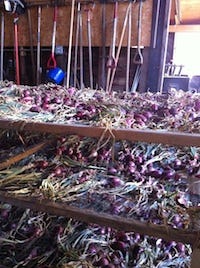 Scott Horner of Small Potatoes farm is mastering a new style of Community Supported Agriculture (CSA) programs, one that wouldn’t be possible on a larger scale. His goal: to reduce waste, keep the bounty as fresh as possible, and give members of the community just what they want. “The key to being successful at small-scale farming today is catering exactly to people’s needs,” he told me. Delicious Orchards and Orchard Valley, two other local farms, customize the experience with "you pick" programs, which allow members of the community to get their hands dirty and truly understand where their fruits and veggies come from.
Scott Horner of Small Potatoes farm is mastering a new style of Community Supported Agriculture (CSA) programs, one that wouldn’t be possible on a larger scale. His goal: to reduce waste, keep the bounty as fresh as possible, and give members of the community just what they want. “The key to being successful at small-scale farming today is catering exactly to people’s needs,” he told me. Delicious Orchards and Orchard Valley, two other local farms, customize the experience with "you pick" programs, which allow members of the community to get their hands dirty and truly understand where their fruits and veggies come from.
Customized farm models often demand more work and care. Each week, Horner sends out an email listing the available fruits and veggies, and members reply with exactly what they want and how much (demands are as precise as flat-leaf parsley vs. curled parsley, lots of small carrots, etc.). He then sorts through pages of notes and harvests on the day of pick up. “That’s how you get to know your customers. We’ve found that’s the future of CSAs.”
You May Also Like


